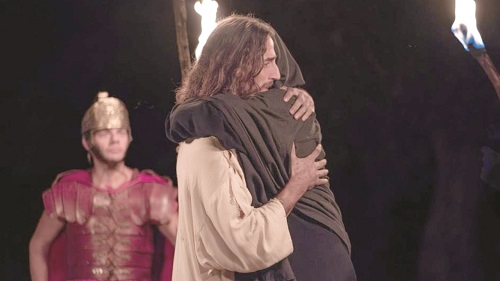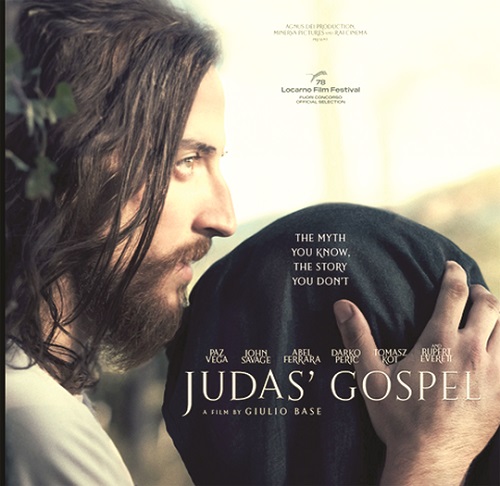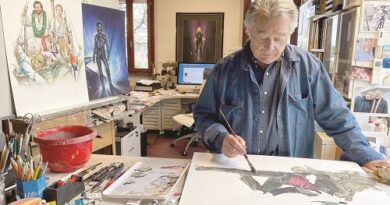Italian Film Explores Judas’ Betrayal
TORONTO – Shot over a period of four weeks in 2024, Giulio Base’s Il Vangelo di Giuda is being prepared for a theatrical release by Milano’s Eagle Pictures. The film stars several notable actors such as Giancarlo Giannini, Rupert Everett and Paz Vega, and takes a novel storytelling approach in its depiction of Judas Iscariot’s life and demise. The film takes the perspective of Judas, who as he’s about to die [famously by hanging], reflects on the events and mission which led to his infamous betrayal of Jesus.
Co-producer of the film, Tiziana Rocca, spoke about the production in anticipation of its Premier at the Locarno Film Festival this coming August. “The passion seen by Judas is a heartbreaking confession. He becomes a fundamental instrument for the fulfillment of the Scriptures, but for this to happen he must transform himself into one of the worst wicked men of all time”. It remains unclear if Base is grounding his story in Gnostic philosophy, as it pertains to the anonymously written “Gospel of Judas”.
The Gnostics were a group that existed in the first and second centuries AD, with some roots in Christian beliefs, who mostly diverted from canonical dogma. The marked difference was that Gnostics believed that knowledge – gnosis in Greek – and not faith would lead to salvation. “The Gospel of Judas” is believed to be a Gnostic text, which was discovered in 1970 by an Egyptian farmer in a tomb near Maghagha Egypt.
In the Gnostic Gospel of Judas, Judas is Jesus’ main confidant and the two conspire to fulfill Jesus’ ascension prophecy – and together orchestrate the betrayal. In the canonical texts, Matthew describes a betrayal in which Judas sells Jesus’ whereabouts for thirty pieces of silver. It might seem like a small detail, but the implications have sparked scholarly debates for decades, since the discovery.
“This will not be a movie that seeks to give answers. I will not side with those who judge Judas to be the epitome of evil, nor will I try to make him a saint”, says Giulio Base. “Rather, I hope it will become a work that will raise questions. It is up to the viewer to reflect on what might be the truth”.
Like Pasolini did for his biblical film The Gospel According to St. Matthew, Base also chose to shoot in Calabria. But whereas Pasolini shot only a few scenes in the region, Base camped the entire production in Italy’s “toe”. An easy decision, as the region’s overall natural beauty, historical richness often lends itself to double for some parts of the Middle East. To boot, seventy-one filmmakers in the region were employed for the production.
“What we are telling is a universal theme” says Rocca. “Passion and betrayal. I would like to thank the director Giulio Base for the bold, ambitious, cultural and highly original project that I immediately agreed to do”.
(Images courtesy of Agnus Dei, Minerva Pictures and Agresywna Banda)
Massimo Volpe is a filmmaker and freelance writer from Toronto: he writes reviews of Italian films/content on Netflix






